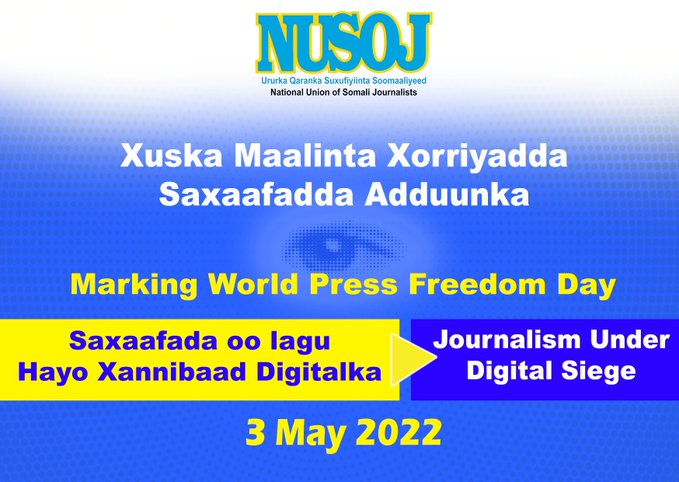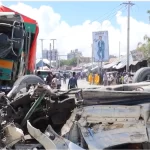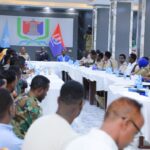While the journalism industry in Somalia has become deft and vigilant about physical attacks against journalists, the same sense of importance is needed to address a rise in online attacks. The digital environment has brought new and targeted threats to both male and female journalists as it offers relatively easy opportunities to follow and harass members of the media community. Surveillance of journalistic movements and activities is often carried out through social media, particularly as journalists are covering live events.
A case in point is the continued detention of three journalists in Hargeisa who were arrested by the authorities due to their coverage of rioting at the Hargeisa Central Prison. While the authorities were angered by the extensive and independent traditional coverage by the media, this was further fuelled by the power of social media to reveal details about the event instantly. Some journalists connected with their Facebook Live coverage and publicly reported on the event, presenting an unquestionably accurate account of what transpired.
Since 3 May 2021, up to three local journalists were forced by the police to surrender and unlock their smartphones in order to delete the pictures or videos. In addition to this violation of privacy, such interference may have also compromised the identity of journalistic sources.
NUSOJ is also aware of at least eight journalists who, since last year, have reported receiving links on their digital devices that contain malware or spyware. These, when activated, compromised the security of their emails and their social media accounts. This is a naked attempt to breach the privacy of journalists, uncover or expose their sources of information, ultimately endangering the practice of free and independent journalism.
The ability to successfully attack a journalist online represents a systemic challenge in the industry – approximately half of the media houses in Somalia are using outdated computers without little or no security, putting journalists at greater risk.
“Journalists are routinely and personally harassed and attacked for writing in their social media accounts. Those who report on political events have been the subjects of open and violent online attacks by supporters of certain politicians,” says Omar Faruk Osman, NUSOJ Secretary General. “This has led some journalists to have to delete posts on their social media accounts, consider carefully what information should be made public, and/or dilute or camouflage what they say and how they say it.”
In some instances, NUSOJ has learned of senior government leaders such as a President of a Federal Member State contacting journalists directly and requesting removal of a particular critical social media report about him or his administration in exchange for a monetary reward. If the journalist does not comply, he is subjected to sponsored attacks.
The current elections have unfortunately provided fertile ground for disinformation. Several tactics are used such as publishing discrediting posts, spreading unilateral information by false media pages on social media, reporting false news and creating false Facebook pages that pretend to support a particular politician. Some of these fake Facebook accounts/ pages which sometimes carry messages of hate-mongering, aim to discredit quality, independent journalistic work in a bid to raise suspicions and mistrust about journalistic work, sow chaos and generally confuse the public.
Another increasing and extremely concerning trend is that of female journalists being singled out and attacked online with threats of rape and sexual violence. This has unfortunately become part and parcel of everyday journalistic life of female journalists while others have experienced severe sexual harassment and intimidation via Facebook Messenger.
While social media has the potential to act as a social good, offer platforms to marginal voices and reach a wider and more diverse audience, there is a need to strengthen the digital security of journalists and capacitate them on the importance of safeguarding their digital rights.
NUSOJ strongly supports the fact that Somalia does not or should not have legislations or policies that limit the enjoyment of fundamental rights such as the right to free expression, access to information, media freedom and privacy. Better investment should be made, however, in helping citizens contribute to healthy and constructive media environments or online discourse.
ENDS





